

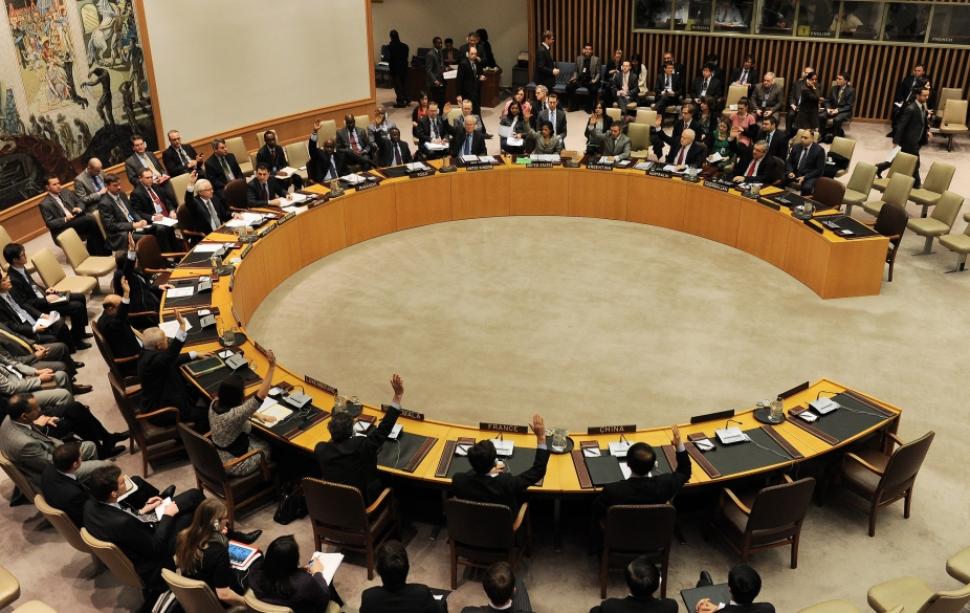
Photo: United Nations Security Council voted for sanctions against North Korea.
China has always been clear about its disapproval of Pyongyang's nuclear weapons program, but recent provocative actions are leaving it with little room for diplomatic maneuvering.
Beijing recently shifted its stance on North Korea's nuclear weapons program. Its earlier opposition to the program was largely limited to rhetoric, but recently it has worked with the United States in the UN Security Council to pass tough new sanctions against the country. This comes after Pyongyang tested a nuclear bomb in January and ballistic missiles in March.
The strongest package of UN sanctions against the country in two decades adds to economic penalties imposed by the United States, South Korea and Japan. The resolution unanimously passed on March 2 stresses that if Pyongyang continues testing nuclear bombs and ballistic missiles, the UN would "take further significant measures."
After years of disagreement, Beijing and Washington have started to see eye-to-eye on how Pyongyang should be reigned in because they have shared interests. For its part, China regards stability on the Korean Peninsula as a primary interest.
The U.S. undersecretary of state for political affairs, Wendy Sherman, told Caixin in January that China's sending of a clear signal to Pyongyang that abandoning its nuclear program is a top priority would go a long way in helping resolve the problem.
China's foreign minister, Wang Yi, recently outlined three priorities regarding the Korean Peninsula. At the top of the agenda is removing all nuclear weapons – no matter whether they were made locally or imported – from both the North and the South. Next, is an agreement that the issue cannot be resolved by force because this may lead to war and regional instability, which Beijing cannot allow. Finally, China's own national security interests must be maintained and protected.
The UN resolution is bound to affect the relationship between Beijing and Pyongyang, Wang said at the Center for Strategic and International Studies in Washington on February 25, but it is needed to achieve the goal of denuclearization on the peninsula. This can be seen as sending a strong message to Pyongyang: The need for denuclearization cannot be challenged.
As North Korea's biggest neighbor – and one with long and strong ties to it – and a permanent member of the UN Security Council, China has the responsibility to defuse tensions in its backyard.
Pyongyang's recent actions have aroused more heated public debate on China's social media sites than in the past. The shockwaves triggered by the nuclear test – cracks were found in Chinese playgrounds near the border – and the possibility of radiation pollution have prompted the public to question China's ties with its isolated neighbor.
In the past, Beijing called its relationship with Pyongyang a "friendship sealed in blood." These close ties frayed a little in 1992, when Beijing established diplomatic relations with Seoul. Beijing's push to forge diplomatic links with countries that have different ideologies and political systems and its growing role on the international stage has caused the rift to widen.
Over the past two decades, and with each North Korean nuclear or ballistic missile test, the North's fragile ties with the international community have deteriorated further. During Kim Jong-il's reign, from 1994 to 2011, these incidents did little to hurt the country's relations with China or put an end to regular state trips by leaders from both sides. However, since Kim Jong-un took over in 2011, the number of high-level exchanges has fallen off significantly.
This cooling of ties is also linked to the gap in development of the two countries. China continues to move forward, assuming a bigger international role in accordance with its strength. Meanwhile, growth in North Korea has stagnated as the country continues to adhere to its "military first" policy, which sees it divert all available resources to its armed forces, even at the risk of economic collapse.
Although some older people may feel nostalgia for the close cooperation the two countries enjoyed during the Korean War (1950-1953), young Chinese are more pragmatic and find it difficult to identify with a nation they see as both foolish and offensive.
The relationship between China and North Korea has reached a point where it must adapt to the demands of the international community and public opinion. Beijing's support for the UN sanctions is a good starting point, and now it must show Pyongyang that it is determined to follow through. After all, the first victim of instability in North Korea would be China.
Day|Week

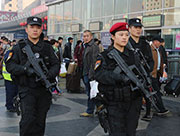 Beijing steps up security for 'two sessions'
Beijing steps up security for 'two sessions'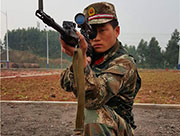 Chongqing sniper’s new record: 13 holes on a rice grain
Chongqing sniper’s new record: 13 holes on a rice grain Women put on spring dresses in Hangzhou
Women put on spring dresses in Hangzhou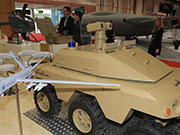 UAVs at Unmanned Systems Exhibition & Conference in UAE
UAVs at Unmanned Systems Exhibition & Conference in UAE PLA's paratroopers conduct night training
PLA's paratroopers conduct night training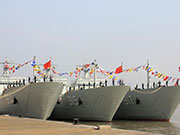 Three new-type tank landing ships join the East China Sea Fleet
Three new-type tank landing ships join the East China Sea Fleet 3,492 reflector panels of China's mega telescope installed
3,492 reflector panels of China's mega telescope installed Stunning Kuche on the Silk Road
Stunning Kuche on the Silk Road Tunisian man creates art of sand in Hangzhou
Tunisian man creates art of sand in Hangzhou Goddess teacher shares fitness program online
Goddess teacher shares fitness program online